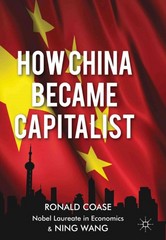Question
1.When the Fed buys bonds, what impact does this have on the money supply and aggregate demand? After the purchase, these dollars are in the
1.When the Fed buys bonds, what impact does this have on the money supply and aggregate demand?
After the purchase, these dollars are in the hands of the public. Thus, an open-market purchase of bonds by the Fed increases the money supply.
2.When the Fed sells bonds, what impact does this have on the money supply and aggregate demand?
After the sale, the dollars the Fed receives for the bonds are out of the hands of the public. Thus, an open-market sale of bonds by the Fed decreases the money supply.
3.When the Fed reduces the discount rate, what impact will this have on the money supply and the aggregate demand?
A lower discount rate encourages banks to borrow from the Fed, increasing the quantity of reserves and the money supply.
4.When the Fed increases the discount rate, what impact will this have on the money supply and the aggregate demand?
Higher discount rate discourages banks from borrowing reserves from the Fed, reducing the quantity of reserves in the banking system, which in turn reduces the money supply.
Can someone please explain in detail why and how questions 1-4 ended up with given answers?
Step by Step Solution
There are 3 Steps involved in it
Step: 1

Get Instant Access to Expert-Tailored Solutions
See step-by-step solutions with expert insights and AI powered tools for academic success
Step: 2

Step: 3

Ace Your Homework with AI
Get the answers you need in no time with our AI-driven, step-by-step assistance
Get Started


